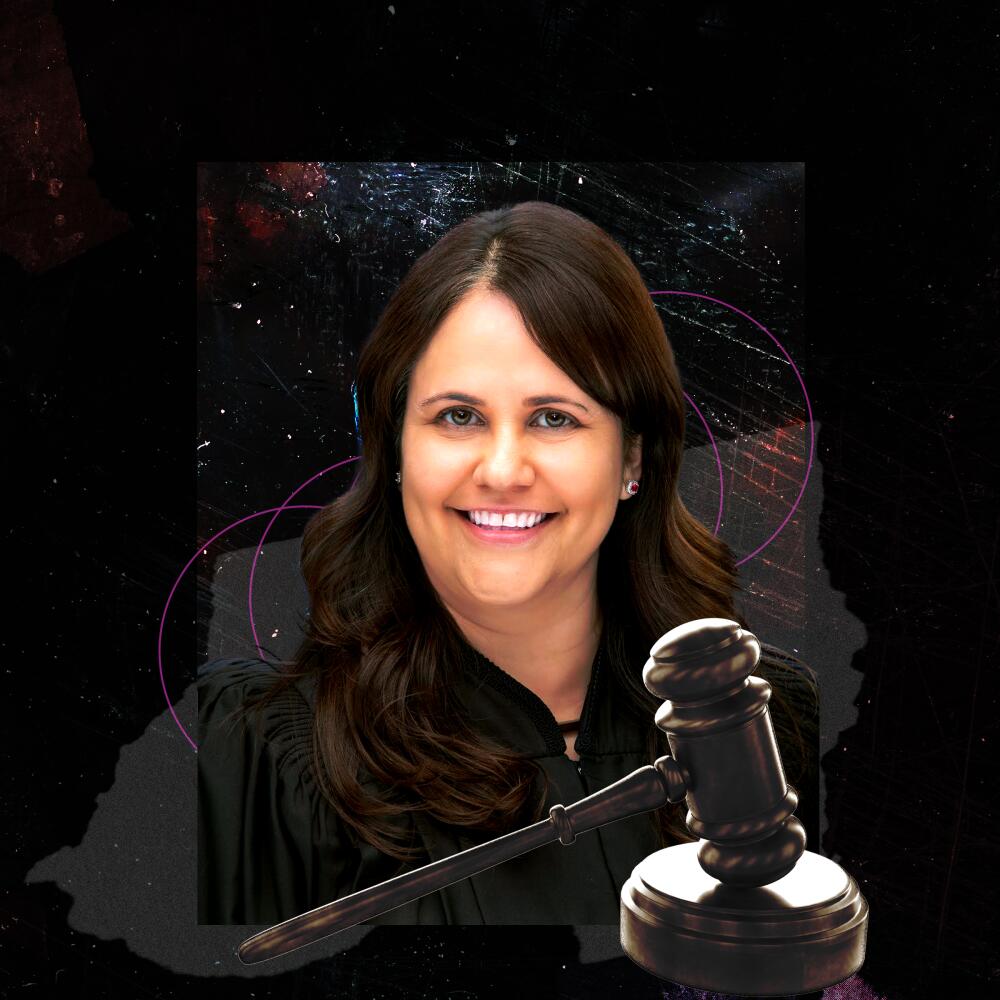
)
- Share via
A first-generation Mexican American who worked in the fields with her farmworker parents has been elevated to the largest federal appeals court.
U.S. District Judge Ana de Alba, a California native who was born in Merced, was confirmed by the U.S. Senate on Monday to serve on the San Francisco-based 9th U.S. Circuit Court of Appeals. She was confirmed on a 48-43 vote.
Eslabón Armado has been leading a new wave of Mexican regional artists who have taken the genre to new heights. Will their song ‘Ella Baila Sola’ win big at this year’s Latin Grammys?
Once she takes her oath of office, De Alba — who was nominated by President Joe Biden — will be the fourth Latina woman appointed to the court.
U.S. Senator Alex Padilla, a member of the Senate Judiciary Committee, said her path to confirmation “embodies the American Dream,” adding that, “she has more than proven herself as the public servant Americans deserve on the Ninth Circuit.”
“Judge de Alba is dedicated, fair, and universally respected by her colleagues,” Padilla said in a statement.
De Alba earned undergraduate and law degrees from the University of California, Berkeley. She spent a big part of her career with Lang, Richert & Patch in Fresno, where she worked until 2018 and focused on employment and construction cases.
“El Tiny” completed its third annual takeover of NPR’s Tiny Desk concert series during Latinx Heritage Month. Produced by the Alt.Latino team, “El Tiny” featured eight acts from various corners of the Latino community.
In 2022, she became the first Latina to serve on the U.S. District Court for the Eastern District of California. Prior to that, she served as a California Superior Court judge in Fresno County.
De Alba has been lauded for her pro bono work and for establishing a Workers’ Rights Clinic that provides low-income and unemployed people free information about their legal rights related to work in California.
During her nomination hearing in May, U.S. Senator Dick Durbin — a Democrat and chair of the Senate Judiciary Committee — asked what led her to establish this clinic while she worked in private practice.
In her response, De Alba recalled a summer when her mother worked week after week with promises to get paid, but eventually saw no compensation after the rancher filed for bankruptcy. That school year, she said, “we went without school clothes.”
Who are we protecting when we pretend white people don’t sometimes say wildly offensive things about people of color? It’s certainly not us.
“It stuck with me. I vividly recall my mother crying in the bathroom,” De Alba said. “It was that kind of experience that I had that led me to figure out a way ... to give people information.”
“The clinic didn’t take cases. The clinic didn’t represent individuals. It just gave them information to know what their legal rights were,” she added.
At that same hearing, Republicans questioned De Alba about a child pornography case in which she imposed the defendant a prison term that fell below suggested federal sentencing guidelines.
De Alba said her sentence was in line with “what probation requested” and based on an “individualized assessment.”
“I did look at everything provided to me in that case,” she said.
In response to GOP suggestions that she leans too liberal, she said: “The type of judge that I will be is the type of judge that I have been. I have been fair.”
“I do apply the law to the facts and I adhere to all binding precedent,” she added.
More to Read
The Latinx experience chronicled
Get the Latinx Files newsletter for stories that capture the multitudes within our communities.
You may occasionally receive promotional content from the Los Angeles Times.











